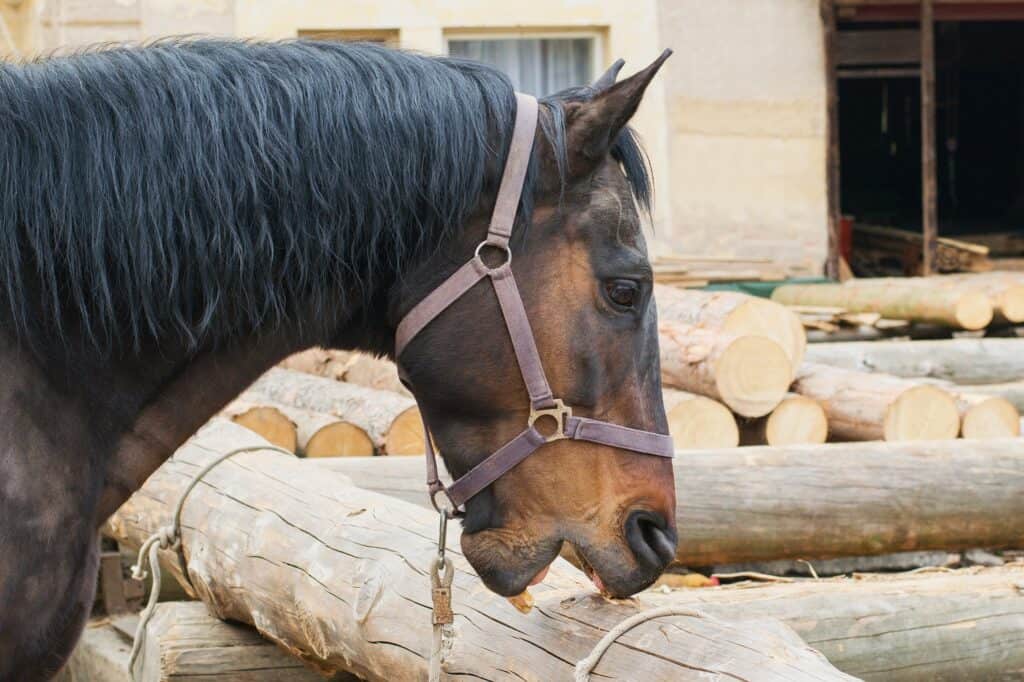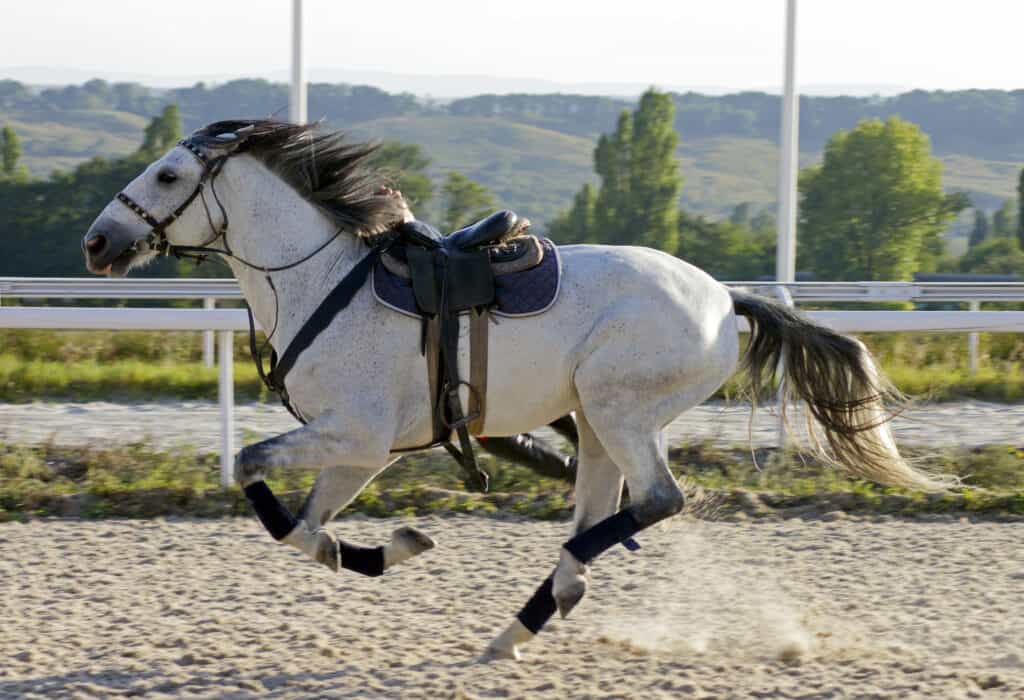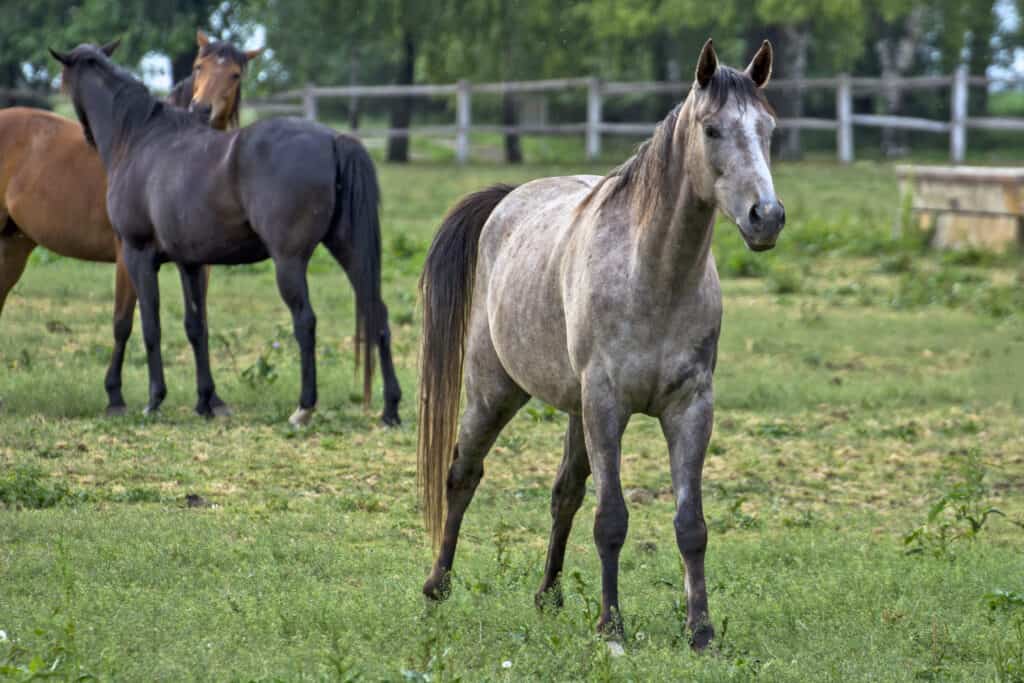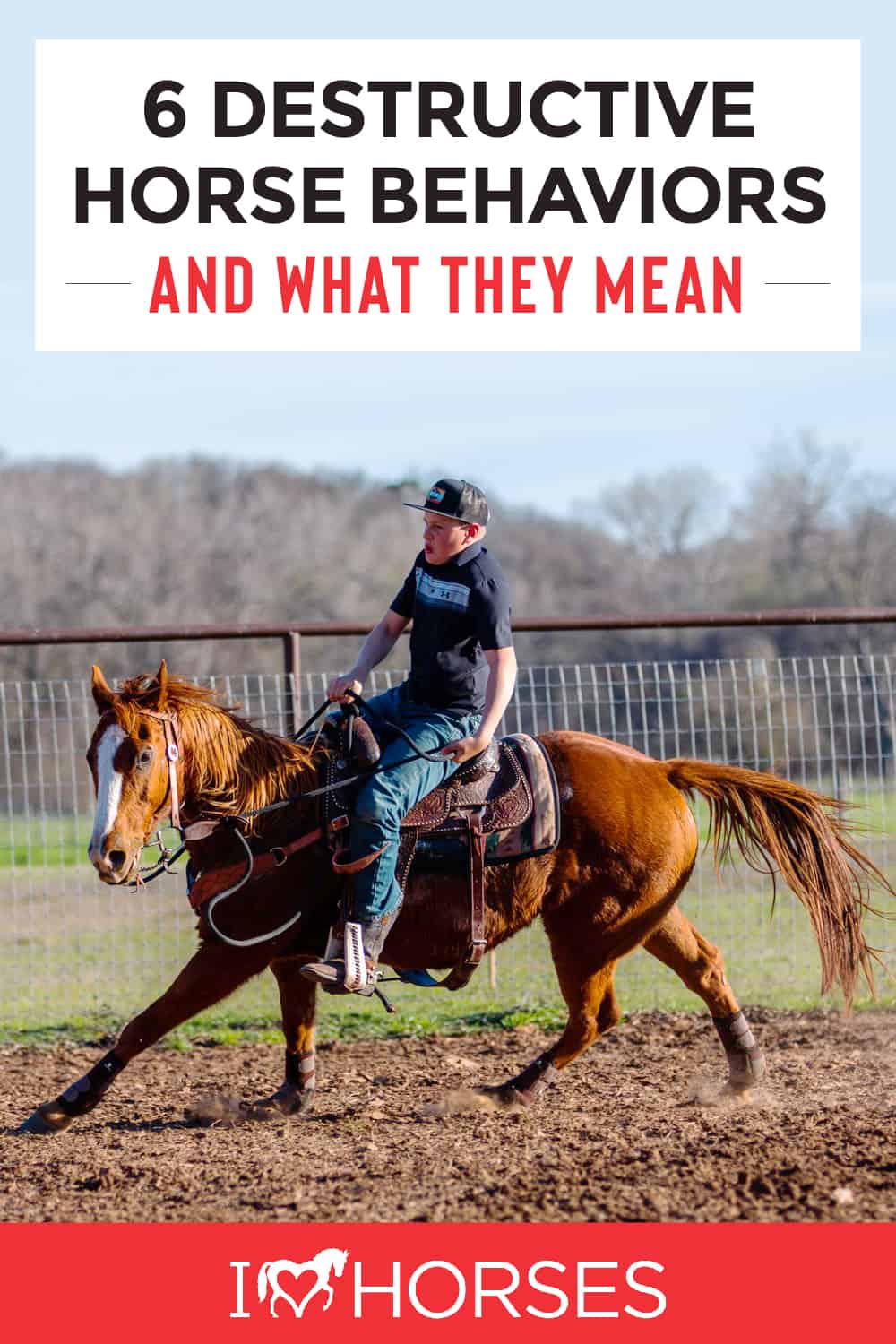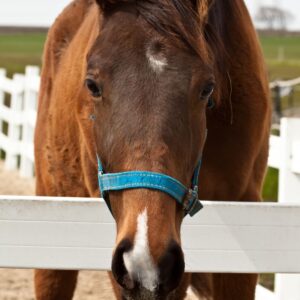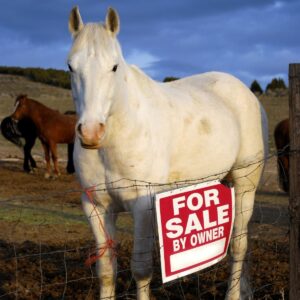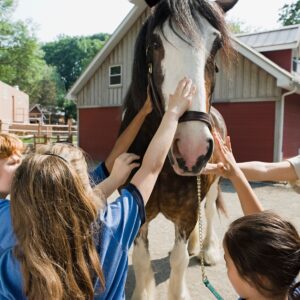It is no secret that horses can develop destructive behaviors. These behaviors can vary from stable vices like cribbing to misbehaving under saddle, to just being cranky. But what is our horse trying to say? In most cases, they are trying to tell us that they don’t feel well in the only ways they can. In this article, we will discuss the most common destructive horse behaviors that give insight into their health.
Wood Chewing
Anyone who keeps horses in stalls for very long will have some experience with wood chewing. You may wonder if you have an overgrown beaver instead of a horse. Wood chewing is usually the result of boredom.
A horse’s digestive system is designed for the horse to spend 80 percent of its time grazing and eating small meals throughout the day. Then we come along, put them in a stall, and feed on a regular two-meals-a-day schedule. This leaves the horse to their own devices for the rest of that time. When boredom sets in, it is not uncommon for horses to start chewing on what is available. In this case, it is the wood in the stall.
However, wood chewing is not always the result of boredom alone. It can also mean your horse is not getting enough fiber in their diet. If you have a horse who is chewing wood, you can have their hay tested. A standard test will analyze fiber and moisture content, as well as protein and other minerals.
Cribbing and Wind Sucking
Cribbing and wind sucking are similar, but not the same. When a horse cribs, they grasp a surface with their teeth and swallow air. Wind sucking is the process of swallowing air but without grasping a surface. Although it is not always the case, wind sucking can increase in horses fed diets with high concentrates and low fiber rations. Learn more about it in this excellent article on cribbing and wind sucking from vetstream.com .
Stable Vices
Stable vices include cribbing and wind sucking, but they can also include things like teeth grinding, weaving, and pinning ears back at feeding time. This can be a double-edged sword. The anxiety of these vices can either cause an ulcer or make an ulcer worse by increasing the production of stomach acid.
Remember, these vices are not always health-related, but it is a good idea to have a vet check for ulcers if your horse is developing any of these vices. Read more about signs of ulcers in our article "Symptoms of Ulcers in Horses You Should Not Ignore."
Bucking or Irritable When Ridden
When a horse is young and starts to buck or misbehaves when ridden, we are quick to write it off as inexperience, and not wanting to carry the rider. That may not always be the case. Both young and experienced horses can act up when ridden. The first thing we need to do is to make sure our equipment is fitting correctly.
Saddles that do not fit correctly can cause deep muscle aches. These might not be noticeable to the eye, and the horse will very rarely show any signs of lameness from it. However, if the horse is sore from an ill-fitting saddle, they may respond by not wanting to be ridden. You can read more about the six signs your saddle doesn't fit your horse here.
Tossing Head When Ridden
If your horse is tossing his head, chewing the bit, etc., be sure to check the bridle adjustment. A horse is likely to be more cooperative when their bit fits just right. Use the wrinkle at the corner of the mouth as a starting point. Then adjust to what your horse likes. Some horses don’t like a wrinkle. Others work better with one wrinkle (most common set up for a snaffle bit), and still others like two wrinkles (most common in curb bits). Think of it like shoes—some people want a lot of arch support, and others don’t want any.
If your bit is adjusted correctly and the horse is still tossing their head, chewing the bit, or gapping at the mouth, then it may be a dental issue that needs to be addressed. These issues could be anything from needing teeth floated to a wolf tooth needing to be pulled, or a sore in the mouth caused by something they ate. Foxtail is an example of a plant that can cause sores on a horse’s tongue and mouth.
“Mareish” Attitude
Mares often get the title of being “mareish” because of the disagreeable behaviors. These unpleasant behaviors usually coincide with the mare’s estrus cycle. What if hormones don’t bring it on, but instead it is something else causing the attitude?
Sue M. McDonnell, Ph.D., certified applied animal behaviorist and founding head of the equine behavior program at the University of Pennsylvania School of Veterinary Medicine’s New Bolton Center, has this to say on The Horse,
“Our behavior lab gets a lot of cases of ‘problem mares,’ where the issues are attributed to her hormones, but that’s almost never the actual problem,” she says. “Most of the time, she’s got some sort of underlying pain that’s just getting overlooked because people assume it’s because of her cycles. And that becomes a serious welfare issue.”
In addition to the health issues mentioned above, mares can develop fatty tumors called lipomas. These lipomas pull on a mare’s reproductive organs. This can be painful. Even more so during certain phases of the reproductive cycle. We only mention one, but mares can have several issues concerning their sex organs that can cause disagreeable behaviors.
Horse Courses by Elaine Heney
- Listening to the Horse - The Documentary by Elaine Heney & Grey Pony Films
- Shoulder In & Out Training for better balance, bend & topline development with your horse
- Over 110+ Polework Exercises & Challenges to Download
- Dancing at Liberty & Creating Connection with Your Horse (11 lessons) - Grey Pony Films
Final Thoughts
Destructive horse behaviors can give us an insight into their health. When our horse demonstrates destructive behavior, we need to investigate the reason further. Is it boredom, a health issue, or both? Our horses can’t come to us and say, “I am hurting, or I don’t feel well.” So, they show us the only way they know how. Remember, mares can get a bad name, but there can be underlying reasons for that “mareish” attitude.

